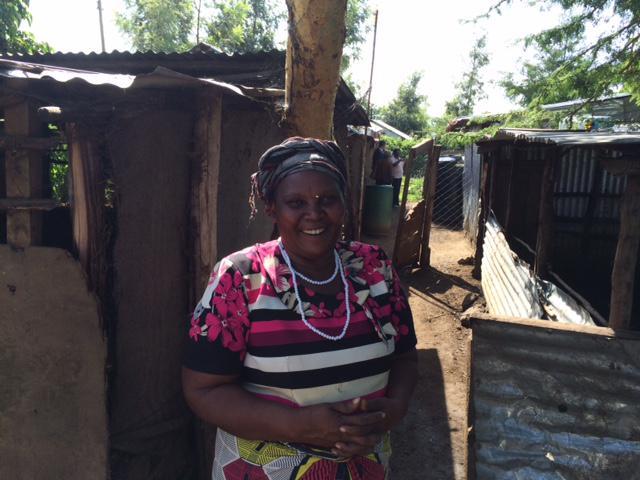ASAL- Agricultural Productivity Research Project (ASAL-APRP)

"The education, knowledge and skills which I have learned are here to stay. They will be with me forever."
Christine Ndinda
CONTEXT
The ASAL Agricultural Productivity Research Project (ASAL APRP) aims to help local pastoralists and farmers in the arid and semi-arid areas of Kenya to adopt and apply new technologies and thereby increase their agricultural production, including that of livestock. Amongst others, it will support activities to boost the production of indigenous chicken, especially those bred by resource poor households.
OBJECTIVES
- Increased agricultural production and productivity in ASAL areas
RESULTS
- An estimated 500 000 stakeholders reached with capacity building programme for a range of stakeholders in the poultry value chain
FACTS AND FIGURES
- Over 75% of chickens in Kenya are bred by indigenous farmers
TESTIMONY
Hatching ideas in Kenya: thanks to support from the EU, Christine Ndinda has a poultry business to crow about

Christine would never have imagined that standing up for her beliefs would force her to flee her village and relocate to a camp over 100km away. After campaigning for free education, she had no choice but to abandon her home during the violence following the 2007 Kenyan elections. Now resettled in Naivasha, Christine has regained control of her life thanks to her own determination and support from the EU.
52-year-old Christine was born in Masinga, a small town in Eastern Kenya, and grew up in a family of entrepreneurs. She spent her childhood in rural village Narok, where her family set up a farm, selling maize in the local markets. "Life was easy back then", she recollects.
During the 2007 elections, Christine advocated for free children's education; one of the promises of the then government in power. Shortly after the elections, she was threatened and evicted from her land. With her life in danger Christine fled, leaving her relatives and belongings behind.
Thanks to a resettlement programme launched by the coalition government as part of a reconciliation process, Christine was resettled in Jikaze, an IDP camp in Naivasha housing victims of political violence from across Kenya. Through their sheer determination, Christine and her neighbours' lives gradually returned to normal. Using her entrepreneurial skills, Christine formed New Hope Women Group, a community organisation engaged in the production and sale of indigenous chickens. Through the EU-supported ASAL Agricultural Productivity Research Project, Christine received a 3 year training in breeding techniques, poultry management and vaccinations.
Today, Christine owns her own business, and demand is high: “people come here to buy”, she says. She plans to buy a larger plot of land and expand her brood of chickens. Christine has high hopes for the future: “in one year, the business will have expanded”. She is grateful for the long-term support provided by the EU. “The education, knowledge and skills which I have learned are here to stay. They will be with me forever”.
Through this project the EU is helping hundreds of people who were forced to abandon their homes and livelihoods after speaking out in defence of their ideas. With help to integrate into their new communities, Christine and her neighbours have gained a second chance to build a new future for themselves and their families.
FACTS AND FIGURES
- Over 75% of chickens in Kenya are bred by indigenous farmers
Total cost (EUR): 8 065 541.00
EU contracted amount (EUR): 4 000 000.00
Duration: May 2012 - May 2017
Implementing organisation: KENYA AGRICULTURAL RESEARCH INSTITUTE
Funding Instrument: European Development Fund
Benefitting zone: Kenya
